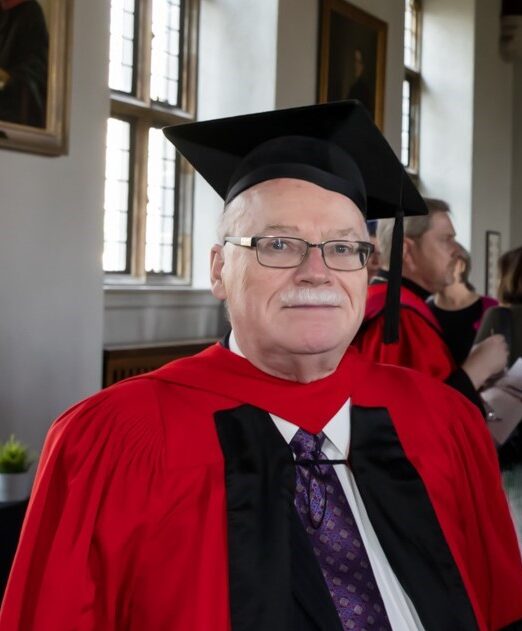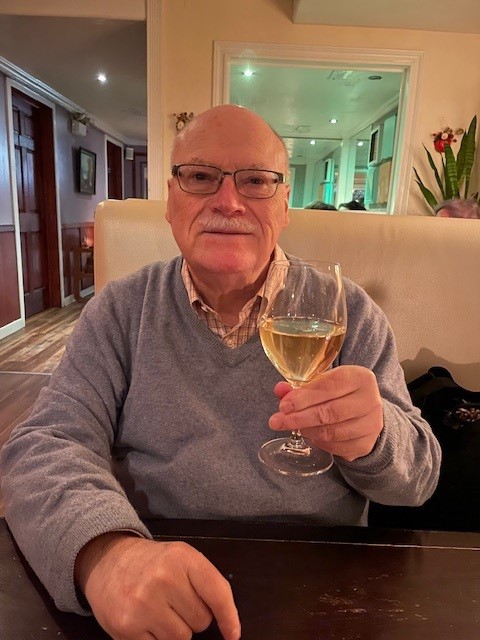
Q: You’re an Old Testament expert – what is important from the Old Testament that people in general should know today?
The Hebrew Bible/Old Testament is one of the world’s immense ancient texts, belonging to Judaism, and shared by both Christianity and Islam to varying degrees. It has been shaping aspects of human culture for some 3500 years, and for that reason alone people in general should become familiar with it, as with any great texts of human culture. More specifically it speaks of the existence of a God behind what exists, of God’s care and purposes for all that exists; in speaking about human history it confronts us with the illusions of power, consumption, and the preoccupation with clan and tribe, that so easily infuse human religion and society as we worship and idolize them.
Q: What’s important about the Old Testament for Christians?
All of the above, but also it is the place (alongside his Mother) where Jesus learned about God’s love, mercy, and justice, and where we too must begin if we are to follow him and recognize God’s Spirit of redemption, reconciliation, and hope at work in and through us. And as the first Scriptures of the Church, it is where, like Christians of all ages, we learn to recognize how God is working in and through Jesus, and to distinguish that from our own propensity to idolatry, and the easy traps of all forms of religion. And it invites us to understand what faithfulness and the generational reshaping of faithfulness means if we are in for the long haul.
Q: You’ve done a lot in your career – tell us your path. How did you get here?
For many years I have understood my calling as one to be a lay teacher in the church. I first studied music, and spent two years in Cape Breton, Nova Scotia as a community musician in the late 1970s. Before that, in part through a post-Sunday church fellowship group, I had a powerful intellectual encounter and awakening of adult faith through the work of Jacques Ellul, the French Reformed lay theologian, historian of institutions, and thinker about technology, and also via the thinking of the Catholic Worker movement.
After my MDiv at Trinity, I went on to do a doctorate at TST in Bible, focusing on the Psalms. In the mid-1980s, I was invited to be a volunteer with the newly created LOGOS Institute, and did a great deal of work with the teams that were creating adult education resources for the diocese. After a short stint at the Henry Budd College for Ministry in northern Manitoba working with Indigenous people preparing for ministry, I began working for the Diocese of Toronto as Director of the LOGOS program, then as Director of Program Resources where I participated in a gifted team of staff consultants supporting parishes in diverse ways. In 2001, I moved to Saskatoon to be the Principal of Emmanuel and St Chad, the Anglican Theological College there, where I served for 7 1/2 years. Following that, I was betwixt and between for 3 1/2 years when I did some writing, and also, at the request of friends who worked in the area of Indigenous and Community Health, did archival research tracing the evolution of health in several northern Manitoba Indigenous communities. Around 2011 David Neelands invited me to do some teaching for Trinity, and I moved back to Toronto in 2012, and have been teaching at Trinity since then.
There have been other bits and pieces that shaped me significantly: being assistant organist at the Parish of St Martin in the Fields for 19 years; encountering the work of the French philosopher Emmanuel Levinas in the late 1980s, particularly his Lectures Talmudiques; during my time in Saskatoon, helping the College develop a Certificate in Indigenous Anglican Theology and going several times to northern Ontario to teach in the William Winter School in Kingfisher Lake alongside now Bishops Lydia Mamakwa and Larry Beardy; and being part of the ACC’s Faith Worship and Ministry Committee and Primate’s Theological Commissions during the early 2000s as the Church continued to grapple with welcoming and including LGBTQ2S+ people, including myself.
Q: What’s happening at the Trinity Faculty of Divinity today that excites you?
The energy and creativity that has come out of the Lilly Foundation Pathways in Ministry grant, and Fr Geoffrey Ready’s harnessing of that energy along with the Divinity Alumni has been exciting. In the longer term of things I also see the Orthodox Studies program giving us life and diversity in all sorts of ways.
Q: Talk about your relationship to music. How does music inform and build faith?
As my fingers become more arthritic, I play less, and I listen more. Augustine says, “Who sings, Prays twice,” and that observation about our formation in faith has certainly been part of my experience. Most people’s operative theology is shaped by the hymns and other liturgical singing we do. But particularly for those who have practised as church musicians, music draws us out of ourselves into the glorification of God, often ecstatically, but also draws us out of ourselves into a collaboration in the work of the Body that invites us to set ourselves and our egos aside.
Q: As a lay person in a parish – what’s your advice for our graduates?
Learn to preside at the Church’s worship and Sacraments simply, unfussily, and elegantly. Look around for the hidden gifts in people through which the Spirit can work. Risk being creative; it’s possible we’ve only invented square wheels so far. And paradoxically, immerse yourself in the great tradition and feed us with it.
Q: What do you do in your spare time?
I find coffee shops fascinating (probably because I am an espresso addict), because they all have unique cultures, one often meets fascinating people and gets a glimpse into the lives and preoccupations of non-theologians and non-Christians, especially younger ones, and one observes much about welcoming people into a space. I enjoy food and wine, cooking and dinner with friends, and enjoy travel. And as noted, I listen to music: Bach, piano music, lieder and art songs, choral music, orchestral music from across periods. Through my own narrow-mindedness I did not immerse myself in rock and pop in my adolescence and have spent fifty years feebly playing catch-up.

